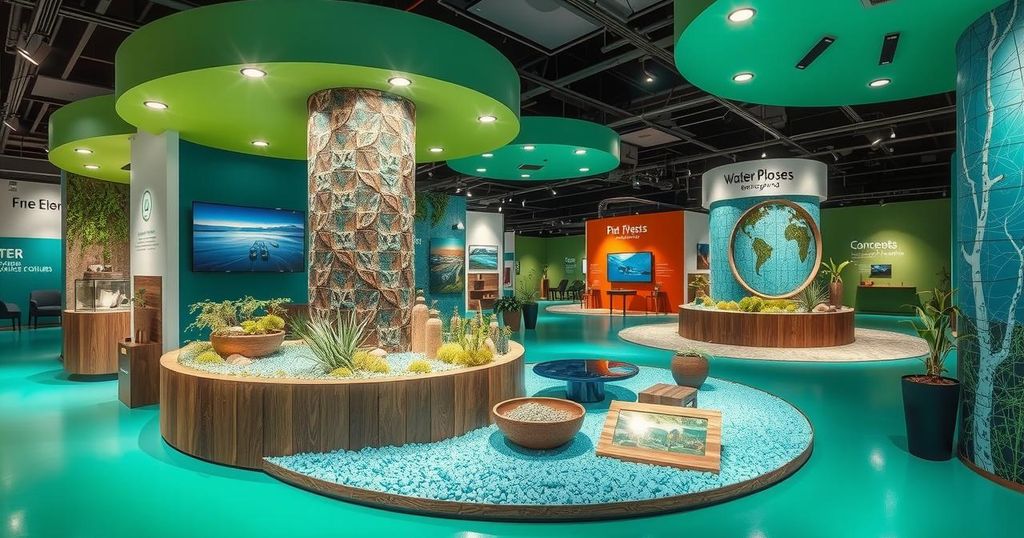The Uganda Water and Environment Week (UWEWK) is an annual event promoting sustainable transformation in Uganda. The 8th edition, UWEWK2025, scheduled from March 17th to 21st, focuses on enhancing resilience and livelihoods in response to climate challenges. Regenerate Africa plays a pivotal role in promoting regenerative practices, supporting vulnerable communities through sustainable agricultural techniques and water management. Collaborative actions among government, organizations, and communities are vital for addressing environmental issues and ensuring sustainable development.
The Uganda Water and Environment Week (UWEWK) is a significant event organized by the Ministry of Water and Environment, promoting sustainable socioeconomic transformation in the country. Since its inception in 2018, UWEWK has facilitated knowledge exchange and advocacy, attracting participation from political leaders, local governments, and various stakeholders. The 8th edition, UWEWK2025, scheduled for March 17th to 21st, will focus on resilience and improved livelihoods by aligning with International Forest Day, World Water Day, and World Meteorological Day.
Uganda faces intensifying environmental challenges, including climate change, which disproportionately affects vulnerable communities such as farmers, women, and children. Climate-related issues like erratic rainfall have led to food insecurity and increased poverty due to livestock losses. Furthermore, the depletion of forests exacerbates flooding and landslides, while poor water quality extends health risks to rural populations. Urgent action is imperative to build resilience and protect Uganda’s natural resources.
To combat these challenges, the Government of Uganda, alongside various partners, is enhancing water supply and sanitation, particularly in underserved areas. Efforts are demonstrated by the National Water and Sewerage Corporation and the National Forestry Authority, focusing on forest protection, reforestation, and implementing Uganda’s climate action plan through climate-resilient practices in agriculture and water management aimed at safeguarding vulnerable communities.
Despite these initiatives, a significant gap remains in resources to scale solutions for climate change resilience. Organizations like Regenerate Africa are critical in promoting regenerative practices that empower communities. Their focus on sustainable water and environmental management aims to foster awareness and capacity-building, particularly in agriculture, among local farmers in areas such as Buikwe and Luwero districts.
Regenerate Africa’s approach includes training on agroforestry and sustainable agricultural techniques that enhance productivity while maintaining ecological balance. These practices equip communities to adapt to climate variability, ensuring food security and sustainable local economies. The emphasis on community involvement ensures that restoration efforts address local needs and priorities while promoting long-term sustainability.
Regenerate Africa also collaborates with partners like Wine to Water to mitigate the water crisis in vulnerable districts by distributing water filters, thus reducing the need for firewood and mitigating waterborne diseases. This initiative empowers women and girls by alleviating the burden of water collection and promoting gender equality while enhancing community health outcomes.
As Uganda gears up for UWEWK 2025, the moment calls for decisive actions toward sustainable environmental management that involves all stakeholders. Recommendations include integrating climate adaptation and water conservation into national budgets, encouraging community engagement in decision-making, and promoting public-private partnerships to spearhead sustainable practices.
Academic institutions must also contribute through research and innovation aimed at solving Uganda’s environmental challenges. Overall, UWEWK 2025 presents a pivotal opportunity to reevaluate progress and recommit to a sustainable and equitable management of water and environmental resources, fostering climate resilience for future generations.
The Uganda Water and Environment Week 2025 represents a strategic moment for enhancing environmental resilience in Uganda. Through concerted efforts involving government, organizations like Regenerate Africa, and community participation, there is potential to address pressing environmental challenges effectively. By committing to sustainable practices, promoting climate-smart agriculture, and fostering innovative collaborations, Uganda can pave the way for a more sustainable future that benefits all, particularly its most vulnerable populations.
Original Source: www.pmldaily.com




